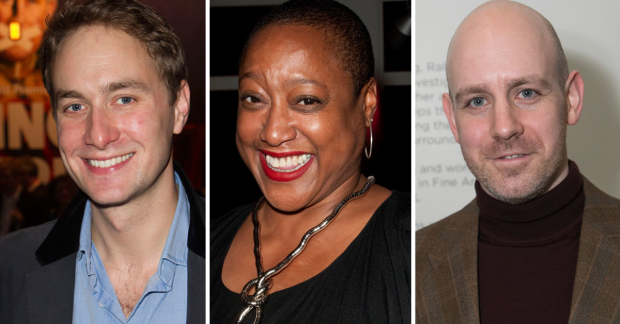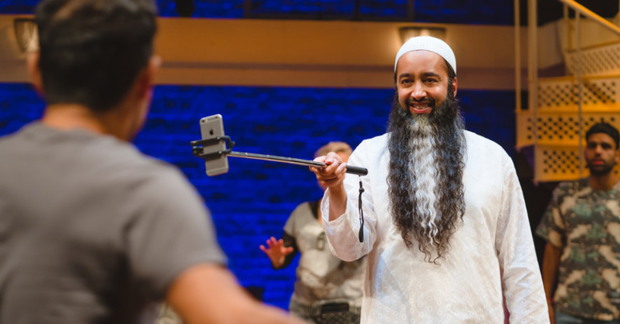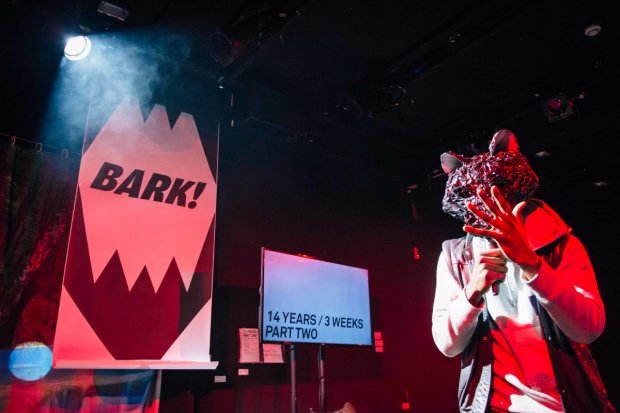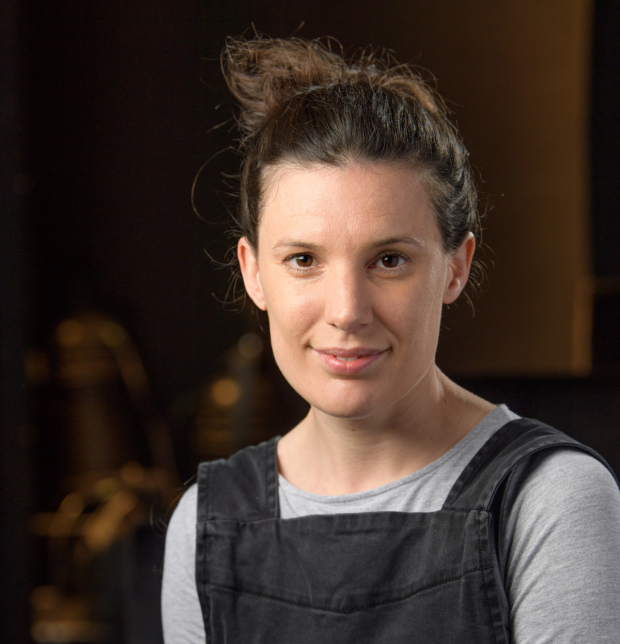Review: OthelloMacbeth (HOME, Manchester)
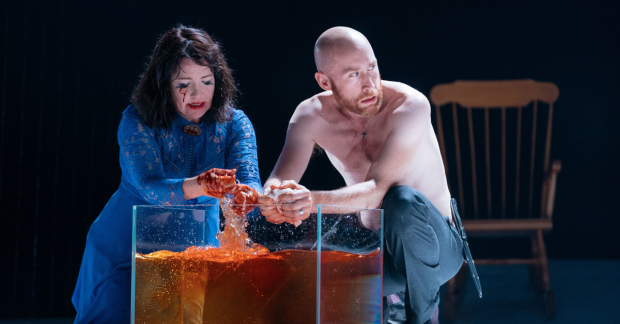
© Helen Murray 2018
A title can tell you a lot. Shakespeare's get shortened. The Tragedy of Macbeth, for one, or The Tragedy of Othello, The Moor of Venice. In both, the tragedy is that of the perpetrator, not their victims. What do they teach us about tragedy in school? It is the story of a powerful man's downfall; a decent bloke undone by one small flaw.
"Ain't it always about a man," sings Kezrena James at the start of Jude Christian's Shakespearean mash-up. Running Othello and Macbeth back to back, Christian shows them as two sides of the same coin – each a story of male violence and its victims. Slamming the plays together in a head-on collision, she asks us to compare their driving forces. Ain't it always about a man?
Filleted to an hour or so each, both plays are cut to restore gender balance; their female voices preserved, their men pared back. Christian keeps the stories impressively intact – no plot points go missing – while shifting the emphasis away from men onto marriages.
Othello, first, begins with Kirsten Foster's Desdemona being forcibly handed over to her husband by her father, and Ery Nzaramba's Othello is possessive from the off. He's easily prodded into jealousy by his spiry, gun-toting bodyguard Iago (Samuel Collings), a spiteful misogynist who spits cascading insults at his own wife Emilia (Melissa Johns). It takes little to subvert Cassio's laid-back, above-board friendship with Desdemona into something that seems like a man-to-man threat, but if Sandy Grierson suggests Cassio's a good guy, he's a complete f***boy elsewhere; quick to drink, quick to draw a knife, quick to abandon his pregnant partner and presume a handkerchief is apology enough.
The galling thing is that all this is endured, even accepted as normal by the three women. Alone, the wives offer each other counsel and support, and it's only when Othello's murderous intentions become clear ("Talk you of killing?") that Foster's Desdemona begins to panic. Infuriating as his jealousy is up to that point, it seems almost par for the course – a woman's lot, a fact of marriage. If these men bear arms to ward each other off, they end up turning their weapons on women.
At the end of Othello, the three abused women – two murdered, one horribly spurned – rise up to become Macbeth's three witches. Donning camouflage jackets, like a force of nature, they enact a form of female revenge: "Unsex me here," one demands. Their prophecies spur Macbeth to murder and, in manipulating male pride, they turn toxic masculinity against itself. Grierson shows us a man driven mad by his own ambition and, if he's a victim of the patriarchy, his wife's a product of it. Caroline Faber's Lady Macbeth, dressed in Thatcherite blue, spurs her husband to power only to recognise the error of her ways as death closes in.
Christian's point is that feminism can't simply overthrow patriarchal power, it must offer an alternative. Basia Binkowska's shimmering silver-black set seems to invert itself. In Othello, the men make all the noise, slamming their fists and their wives into a mic-ed up steel wall. In Macbeth, the witches set the world's sound, sawing at metal strings stretched over the stage. Both end badly: "Blood will have blood".
For all its boldness – an innovative form, a sharp critique – OthelloMacbeth flounders theatrically. In filleting the plays, Christian strips them off their dramatic flesh, leaving only the skeletons of stories intact. She makes good use of jump cuts – Cassio skips from a first sip to drunken stupor then hangover in a flash – and her staging's stylish, but Shakespeare's characters become too simple by half. Both dramas feel like foregone conclusions, giving up their human complexities and contradictions to become schematic instead. The patriarchy is always to blame – end of – and for all the truth of that, it lacks the specificity to hold dramatic interest. Besides, Christian's edit effectively stacks the dice by cutting anything that doesn't confirm her thesis. It's self-defeating, really. If Shakespeare's so toxic, why stage his plays at all?



